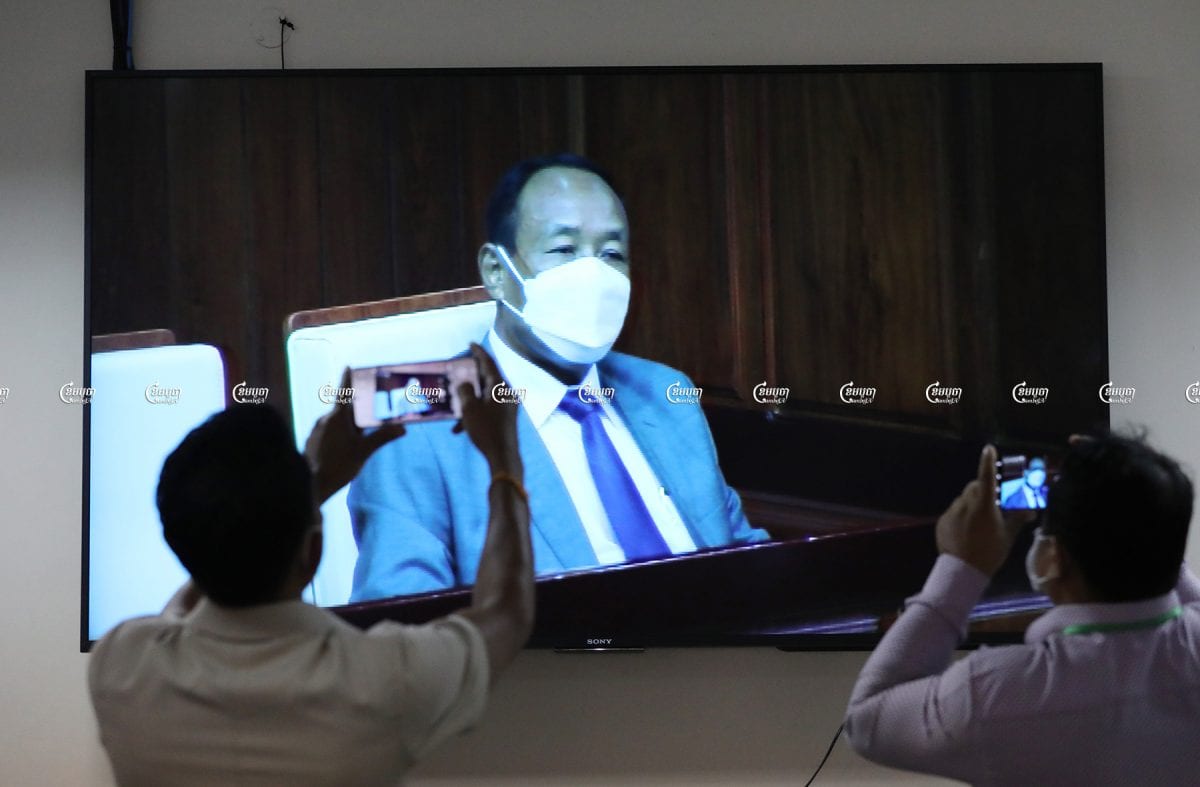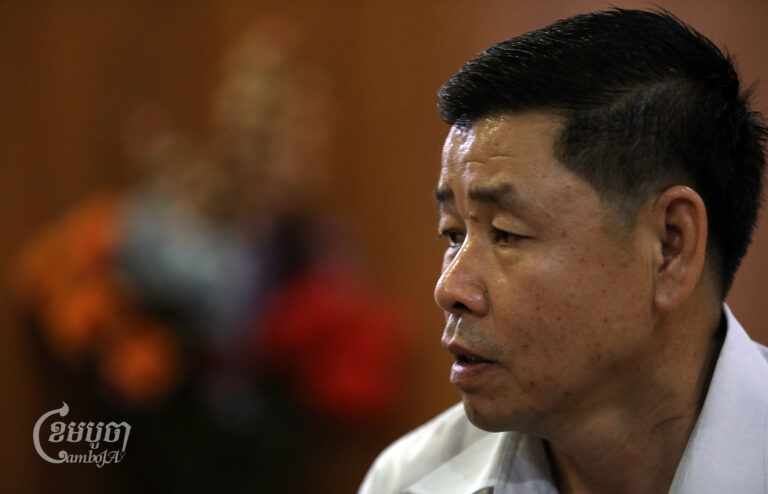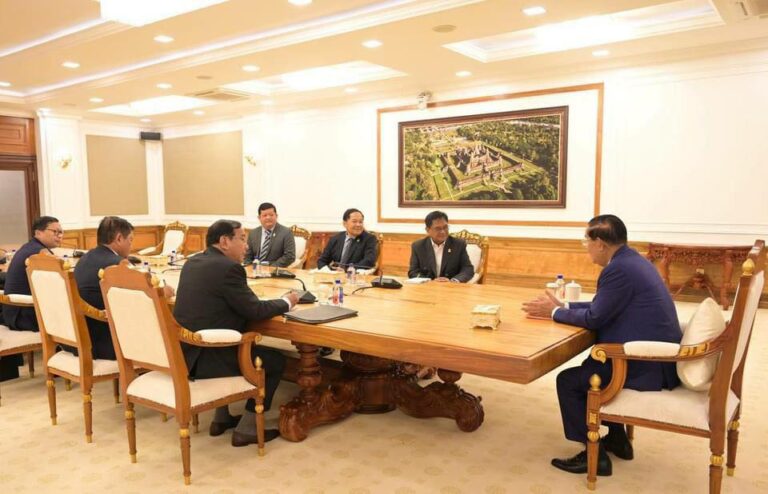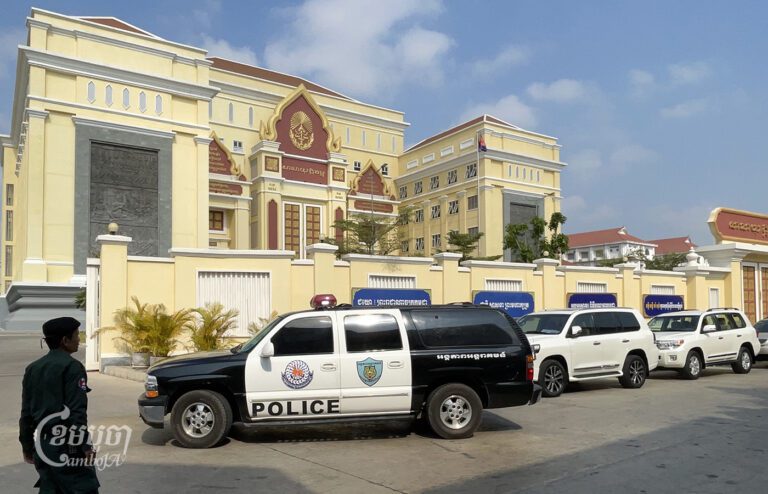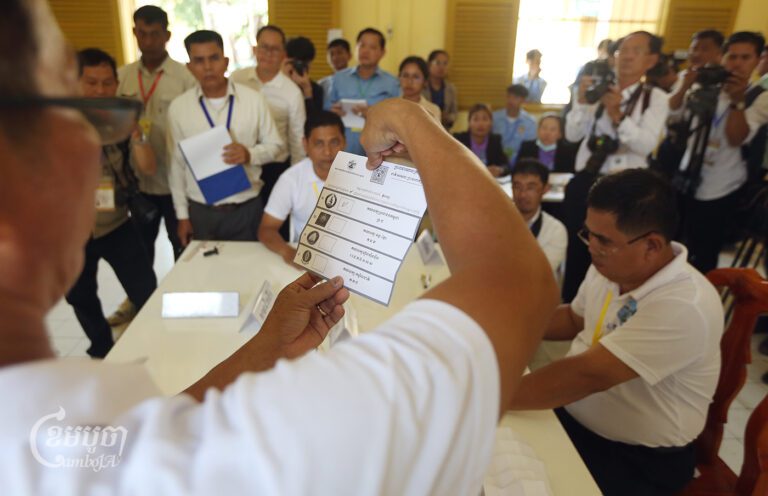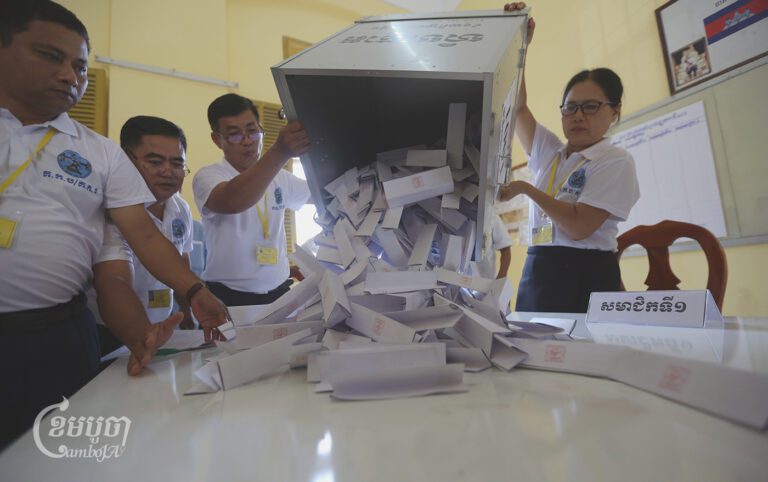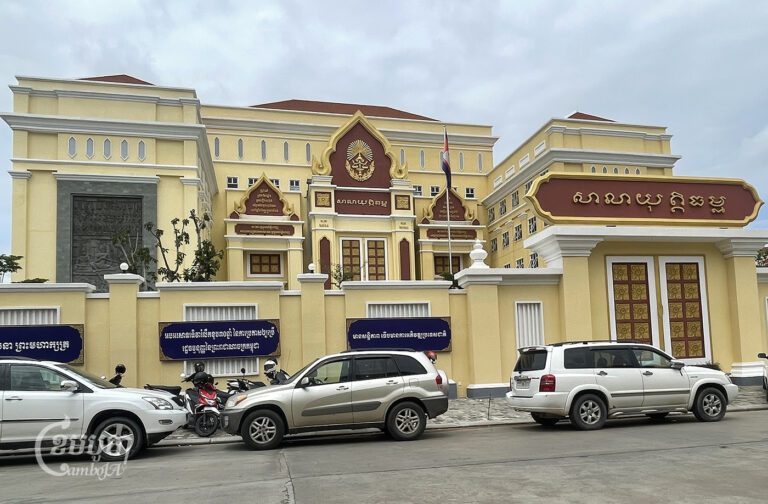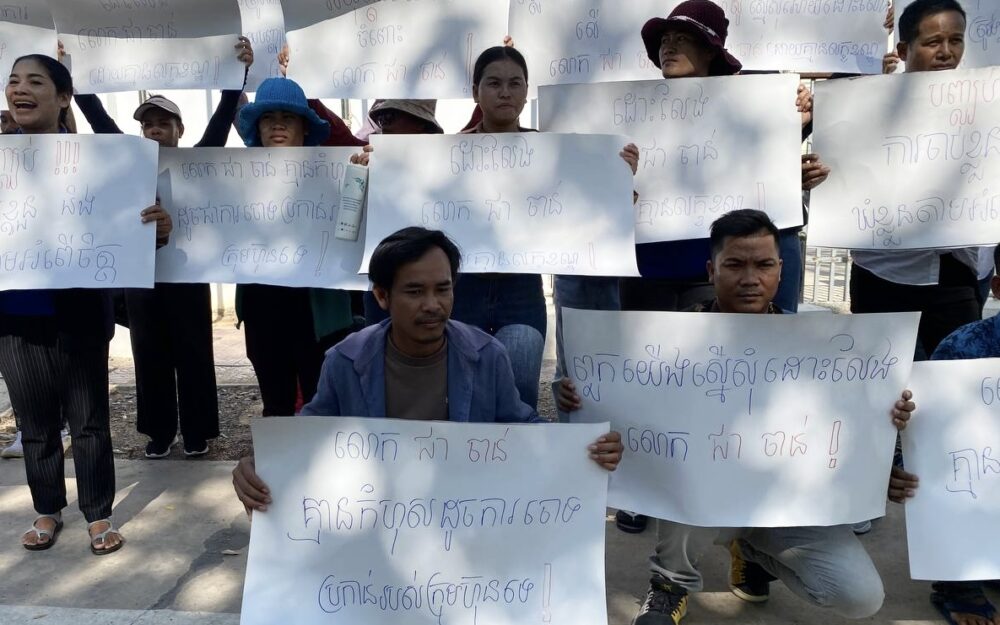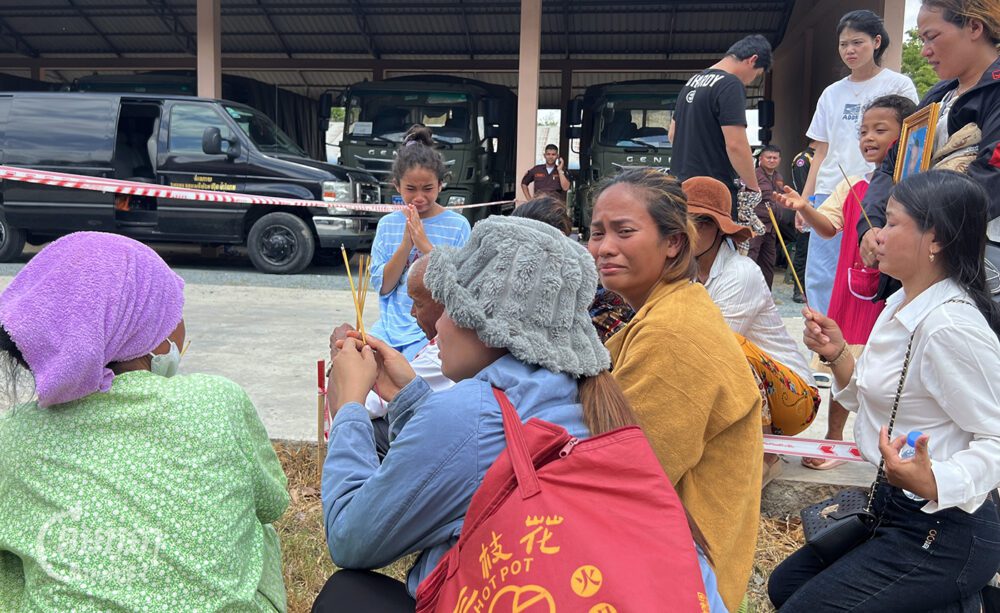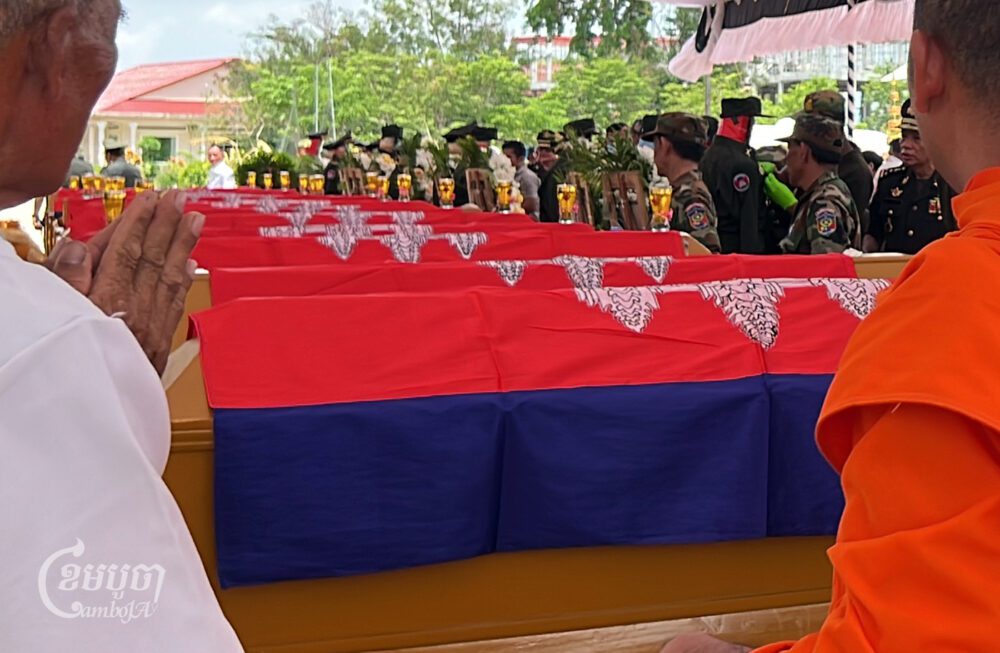The National Assembly on Thursday voted to appoint former provincial governor Prach Chan as the new chairman of the National Election Committee (NEC) to replace Sik Bun Hok, who resigned on June 3 due to health issues.
The 64-year-old Chan was voted in during a plenary session on Thursday at which 82 of the assembly’s 125 members were present. Chan had previously resigned as chairman of the National Assembly’s Commission for Human Rights, Complaints and Investigation on June 16. The veteran Cambodian People’s Party (CPP) lawmaker was chosen over Kar Lean, a former civil servant who was also reportedly in the running for the position.
CPP spokesman Sok Eysan said that Chan had long been a high-ranking official in the cabinet of the party’s central committee before being appointed as Battambang provincial governor in 2001. From 2014-2017, Chan served as governor of the newly created Tbong Khmum province, afterwards joining the National Assembly and being appointed chairman of the National Assembly’s first Commission for Human Rights, Complaints and Investigations in 2018.
“I understand that he was a former provincial governor for many generations, so he understands clearly about the law,” Eysan said. “In particular, I think that before he became the provincial governor, he had studied at the Royal Academy of Cambodia.”
NEC spokesman Dim Sovannarom said that the position of chairman was appointed in accordance with the spirit of the NEC body as enshrined in the Constitution.
“During the mission, [the NEC’s members] must keep the NEC’s interests, and the interests of the nation and the electorate, high as a legacy for the next generation to inherit,” he said.
National Assembly spokesman Leng Peng Long said that after the vote, assembly president Heng Samrin had sent a letter to the king after the session requesting him to appoint Chan as NEC chair. Once he had received the royal decree, he would be sworn in before taking office. Chan himself could not be reached for comment. Currently, all 125 members of the parliament are from the ruling CPP after the landslide victory in the 2018 National Election following the CNRP’s forced dissolution the previous year.
Ou Chanrath, founder of Cambodia Reform Party (CRP), said that in the past when the now-banned Cambodia National Rescue Party (CNRP) had a voice, the nine-member NEC had been made up of four members from the CNRP, four members from the CPP and one member from civil society. Now, he said, this rule was no longer used.
“If they [NEC’s members] come from political parties, more or less they will still get pressure from politicians,” he said. “So [the CPP] will prefer to have someone from their own party.”
Chanrath said that he believed the government should choose NEC members from non-government organizations, university teachers, businesspeople and journalists to ensure the institution’s independence.
Khmer Will Party (KWP) president Kong Monika said that he was not surprised that the single-party National Assembly had appointed a senior CPP official to the position.
“The National Assembly voting to support Prach Chan as president of NEC is not strange, and it’s a normal thing, but we regret it,” he said. “The NEC is still not independent, and the NEC is still influenced by the ruling party because most of the NEC’s members come from the ruling party after the CNRP was dissolved.”
Monika added that according to the experience of democratic countries, they select members of election committees through transparent processes and draw their members from civil society, law, retired civil servants and other people with varied experience.
“So their NEC is more independent and not like the formula of Cambodia’s NEC that has been implemented right now,” he said. Monika said that even in the past when NEC’s members came from both the ruling and opposition parties, the committee had not necessarily been independent either. He hoped that Chan would use his new position to reform some of the problems facing political parties including complicated procedures for candidate applications.
Korn Savang, coordinator of the monitoring unit of the Committee for Free and Fair Elections in Cambodia (Comfrel) said that the NEC needed to be both balanced and independent. As well as invoking the previous arrangement that drew members from different parties, he suggested that requiring members to temporarily resign from their political parties could help achieve that balance.
“If this selection [for the NEC’s chairman] does not show independence in the procedure … it is also difficult to demonstrate the independence needed to be leading this position,” he said.


